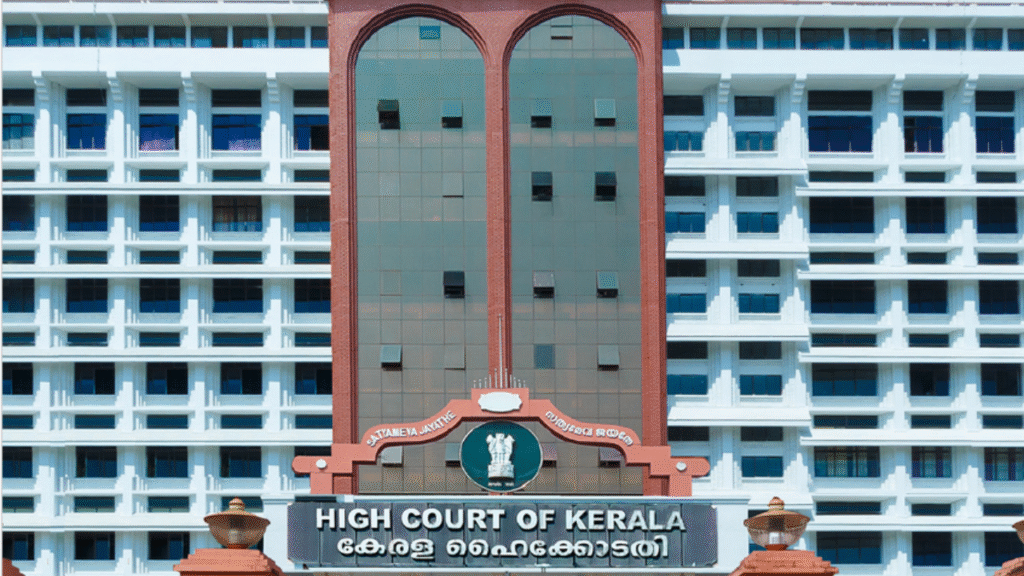Motor Vehicles Act, 1988 – Sections 185, 203, 204; Bharatiya Nyaya Sanhita (BNS) – Section 281 – Breathalyzer Test – Calibration – Admissibility of Evidence.
(2025) 7 KCD 33 : 2025 KER 48676
CRL.MC NO. 5442 OF 2025; 3RD DAY OF JULY 2025
IN THE HIGH COURT OF KERALA
THE HONOURABLE MR. JUSTICE V.G. ARUN
Facts: The petitioner was the accused in Crime No. 1637/2024, registered for offenses under Section 281 of BNS and Sections 185, 3(1), and 181 of the Motor Vehicles Act. The allegation was that the petitioner was found driving his scooter rashly and negligently on December 30, 2024, suspected of consuming alcohol, arrested, and later released on self-bond after a breathalyzer test.
Petitioner’s Contentions:
The breathalyzer test was not conducted immediately after intercepting the vehicle as required by Section 203 of the Motor Vehicles Act, but much later after his arrest.
He was not subjected to a medical test within two hours of arrest, as stipulated by Section 204 of the Motor Vehicles Act.
The printout of the breath analyzer test showed a reading of 412 mg/100 ml in the blank test conducted immediately before his breath sample was taken, indicating improper calibration; the police were bound to ensure the device showed ‘zero’.
The offense under Section 181 of the Motor Vehicles Act was not attracted as he held a valid driving license.
The prosecution for Section 281 of BNS, which is founded on dangerous driving under the influence of alcohol, cannot be sustained without proof of alcohol consumption.
Court’s Observations and Findings:
The breathalyzer test was indeed conducted “some time after” the petitioner’s arrest, violating the requirement of Section 203(1) of the Motor Vehicles Act that it be conducted “as soon as reasonably practicable”.
The contention that the breath analyzer test should only be conducted after ensuring the instrument’s calibration is at ‘zero’ was well-founded.
The purpose of an Air Blank Test is to check for residual alcohol and verify the breathalyzer’s correct functioning. It is mandatory to conduct an Air Blank Test and ensure the calibration is at ‘zero’ (‘0.000’) before taking a breath sample. The DGCA’s practice for aviation personnel reinforces this standard.
Since the Air Blank Test reading was 412 mg/100 ml (instead of ‘0.000’), no sanctity or reliance can be placed on the alcohol content recorded in the petitioner’s test.
As the petitioner was not subjected to a separate medical test, there was no acceptable evidence regarding his blood alcohol level. Therefore, prosecution for the offence under Section 185 of the Motor Vehicles Act would be futile.
The offense under Section 181 read with 3(1) of the Motor Vehicles Act was also not attracted, as the petitioner possessed a valid driving license.
The challenge against prosecution under Section 281 of BNS failed, as the question of dangerous driving endangering human life is a matter to be decided based on evidence tendered.
The Court noted that police officers conducting the test might not be aware of the ‘zero’ calibration requirement for the blank test, suggesting the Director General of Police issue necessary directions.
Decision:
The Criminal Miscellaneous Case was allowed in part.
The final report and further proceedings against the petitioner for the offences under Sections 185, 3(1), and 181 of the Motor Vehicles Act were quashed.
A copy of the order was directed to be made available to the Director General of Police for issuing necessary directions regarding the mandatory ‘0.000’ reading for Air Blank Tests before breathalyzer tests.


